
Schulberg’s parents, Adeline and B. P. Schulberg, hold an infant Budd in this early family portrait.
Budd Schulberg (1914–2009) was a celebrated screenwriter, novelist, playwright, and journalist best remembered for his classic novel What Makes Sammy Run? (1941) and his Academy Award–winning screenplay for On the Waterfront. Schulberg was the first major American novelist to grow up in Hollywood, a town with which he had a complex and sometimes contentious relationship.
Born Seymour Wilson Schulberg on March 27, 1914, in New York City, Schulberg and his family relocated to Los Angeles a few years later. His father, Ben “B. P.” Schulberg, became one of the most prominent movie producers in the 1920s and ’30s, so Schulberg grew up among movie stars and powerful studio executives. His mother, Adeline Jaffe, was a talent agent who later became one of the first female literary agents. Both of Schulberg’s parents valued authors and literature, and cultivated Schulberg’s literary ambitions throughout his childhood. More than acting, though, Schulberg revered boxing; his father introduced him to the sport and to some of the era’s champions. His fascination with boxing would influence much of his writing career, including his 1947 novel The Harder They Fall.
Schulberg attended Dartmouth College and graduated in 1936. He then worked in Hollywood as a writer (collaborating with F. Scott Fitzgerald, among others) while working on his first novel, What Makes Sammy Run? Once it was published, the book set off shockwaves with its frank exposure of the dark side of Hollywood’s golden era. The novel angered real-life industry heads and damaged his own father’s career. Schulberg was fired from his scriptwriting job with Samuel Goldwyn and nearly blacklisted in the filmmaking business.
During World War II, Schulberg worked for the OSS, the predecessor of the CIA. In 1945, director John Ford tasked him to help assemble film evidence of the horrors of the Nazi concentration camps to be used during the Nuremberg trials. This was the first time that film evidence was used in a trial to convict. He compiled footage shot by German filmmakers, including Leni Riefenstahl, who was arrested by Schulberg himself and brought to Nuremberg to help aid the prosecution.
In 1951, Schulberg was called before the House Un-American Activities Committee to testify about his former involvement with the Communist Party. Though he had been a member of the party for six years, he had quit after a bitter disagreement with party members who wanted to vet his script for What Makes Sammy Run?. During his testimony, he identified several fellow Hollywood figures as Communists. The HUAC trials caused another rift between Schulberg and the film industry, with many feeling that his testimony betrayed friends and colleagues.
Despite this setback, Schulberg soon had his greatest film success, with his screenplay for On the Waterfront, directed by Elia Kazan. The movie, about New Jersey longshoremen whose lives are controlled by the Mob, won eight Academy Awards and also evolved into a novel (1955) and a play (1988), both written by Schulberg. He soon reunited with Kazan, turning the title story from his collection Some Faces in the Crowd (1954) into a screenplay for the influential film A Face in the Crowd (1957), which launched the career of actor Andy Griffith.
Throughout his career, Schulberg worked as a journalist and essayist, often writing about boxing, a lifelong passion. Many of his writings on the sport are collected in Sparring with Hemingway (1995) and Ringside (2006). Other highlights from Schulberg’s nonfiction career include Moving Pictures (1981), an account of his upbringing in Hollywood, and Writers in America (1973), a glimpse of some of the famous novelists he met early in his career.
Schulberg married four times and had five children. He died at his home on Long Island in 2009.

Schulberg’s parents, Adeline and B. P. Schulberg, hold an infant Budd in this early family portrait.
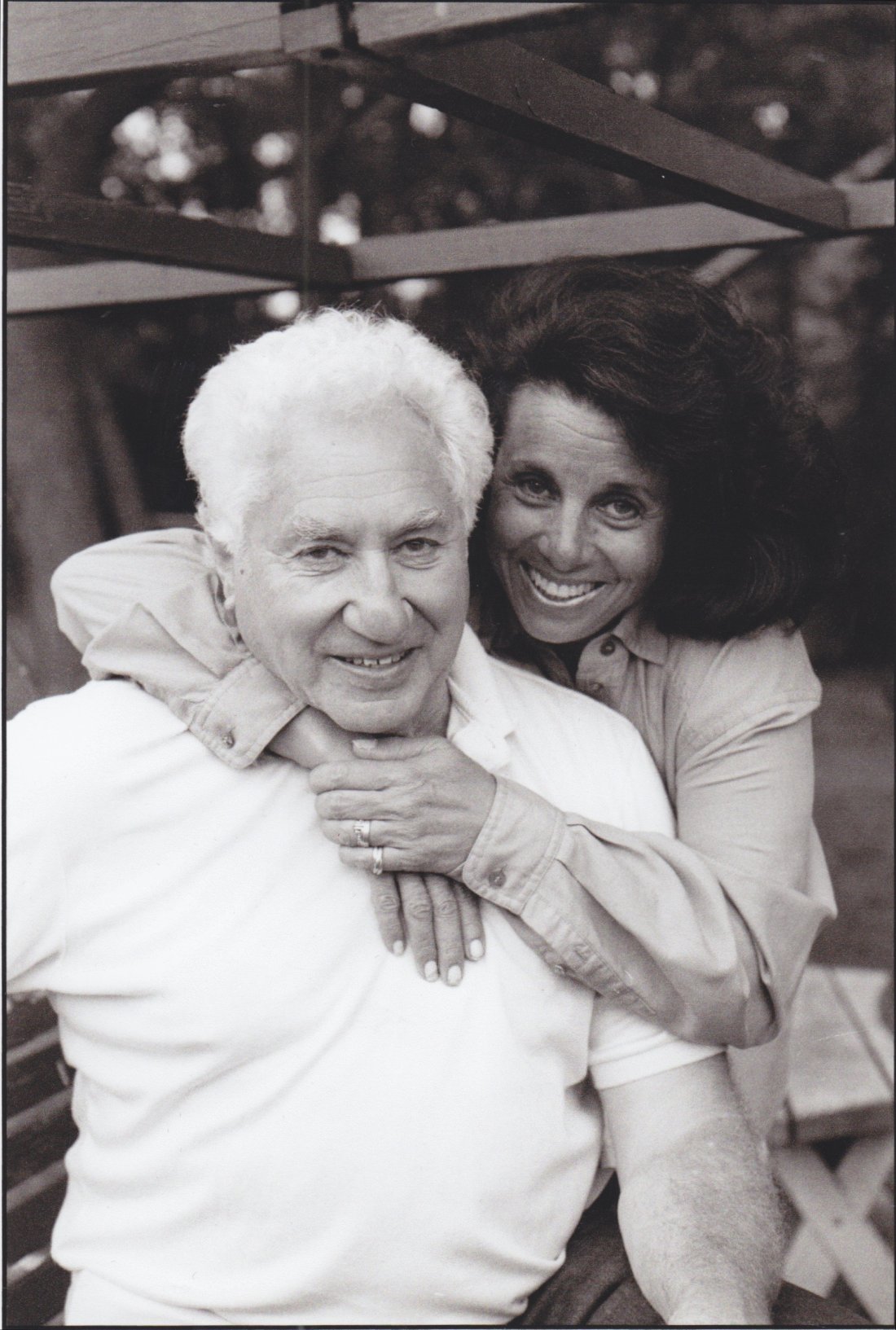
Schulberg and his fourth wife, Betsy Schulberg, in Westhampton Beach, New York, in 2003. © 2003 Ken Regan
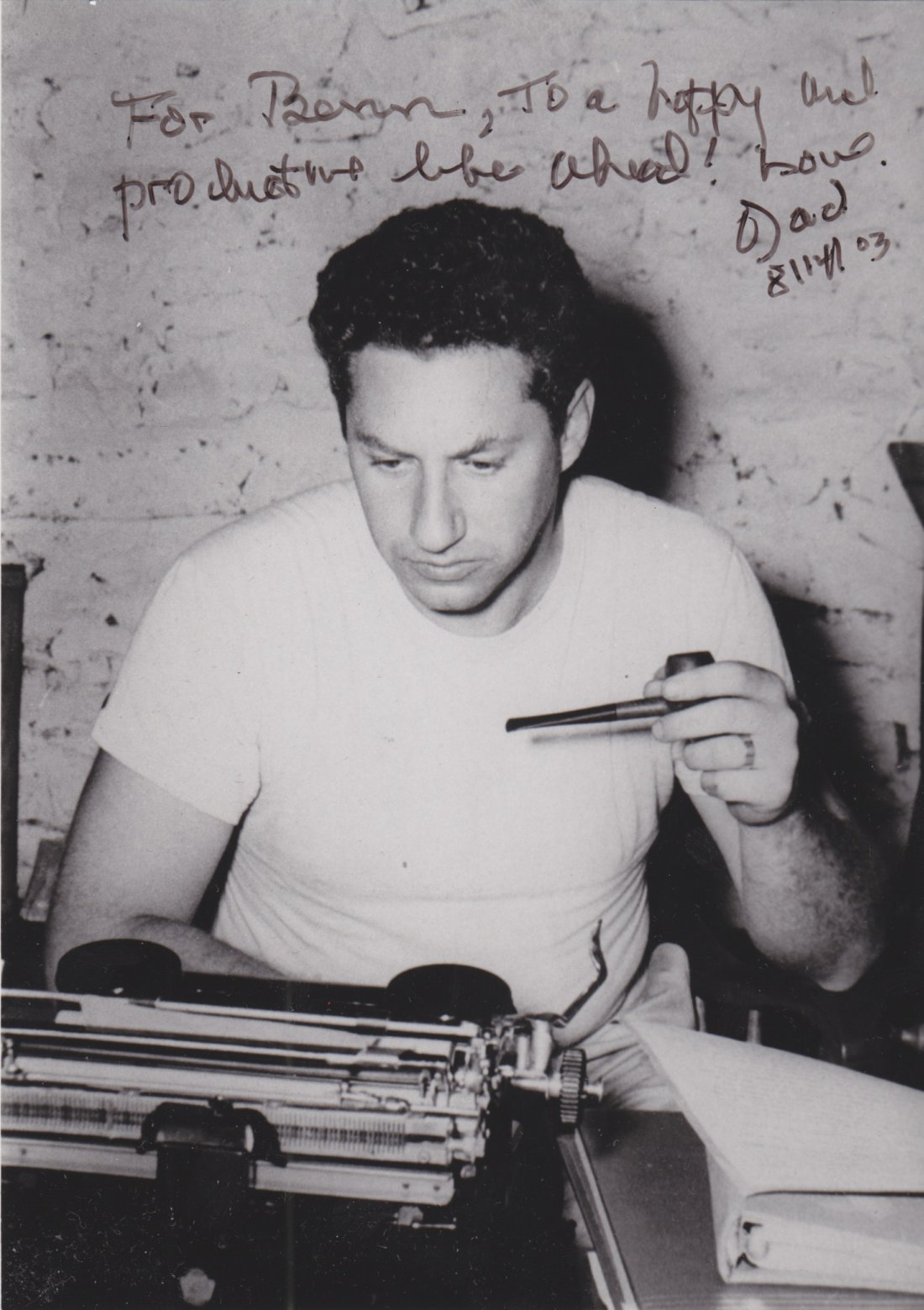
Schulberg at work on his typewriter. At the top of this photo, he wrote the following note to his son: “For Benn, To a happy and productive life ahead! Love, Dad 8/14/2003.”
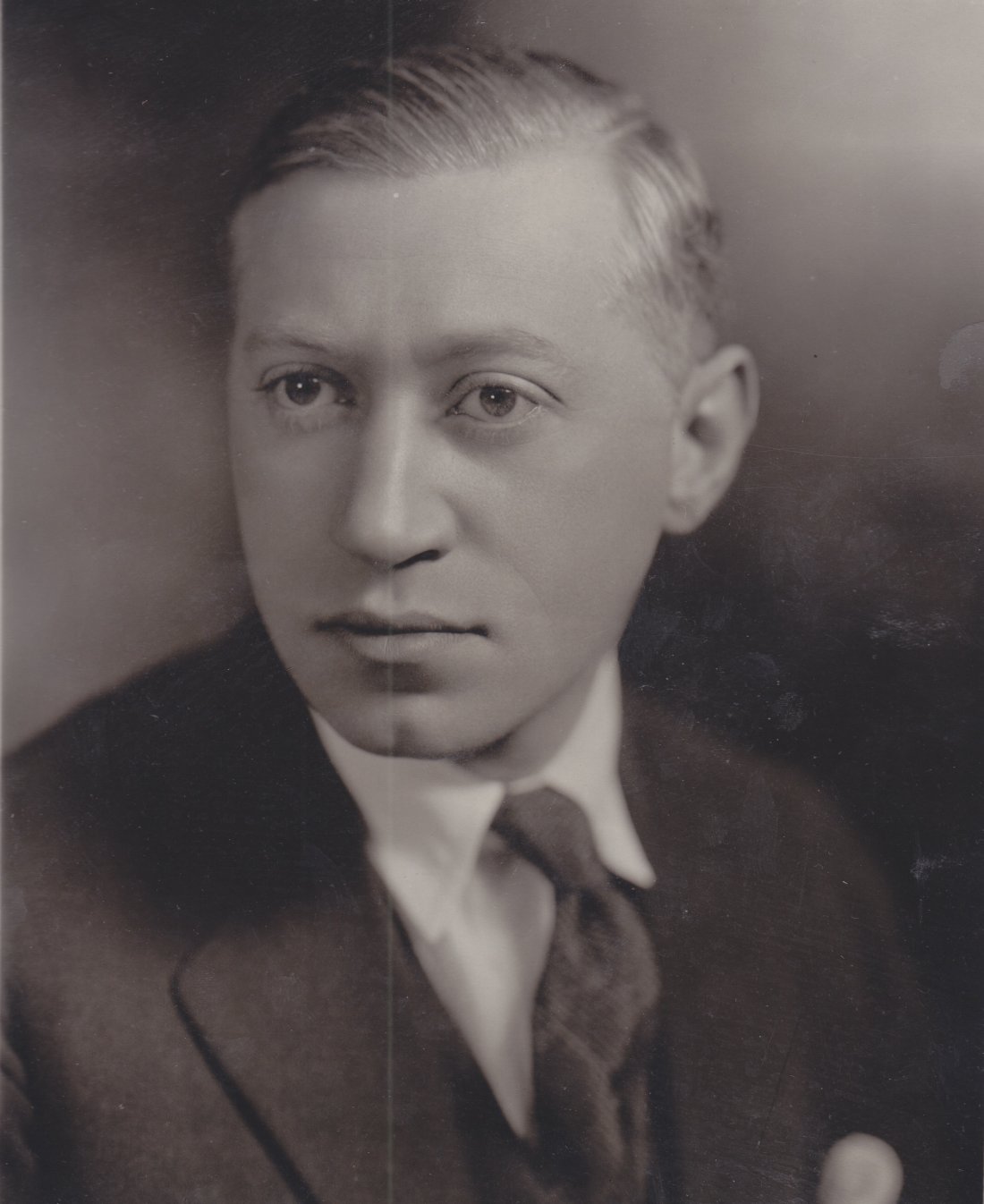
Schulberg’s father, B. P. Schulberg.
Origin: Culver Pictures Inc.
Schulberg, B.P. (1892-1957), American film producer and executive
“This picture is loaned for one reproduction only. Must not be used for advertising without written permission.”
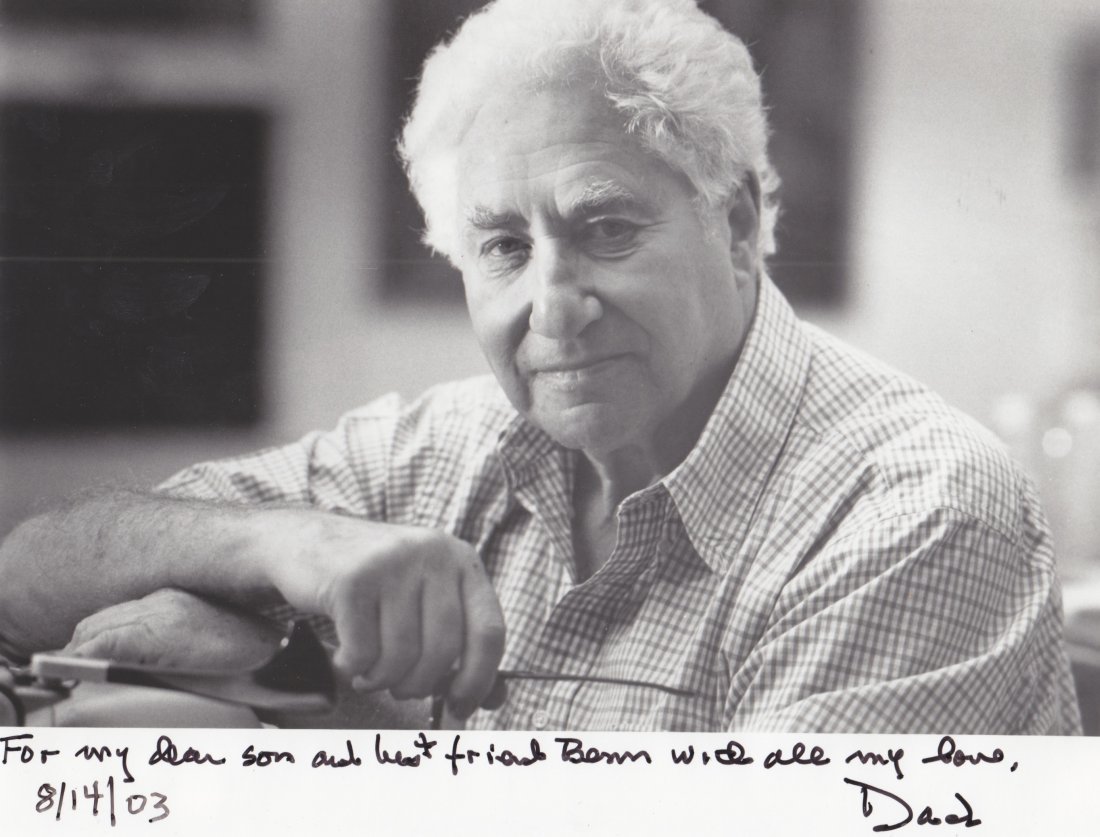
A portrait of Schulberg in 2003, with the following note to his son at the bottom: “For my dear son and best friend Benn with all my love, Dad 8/14/2003.”
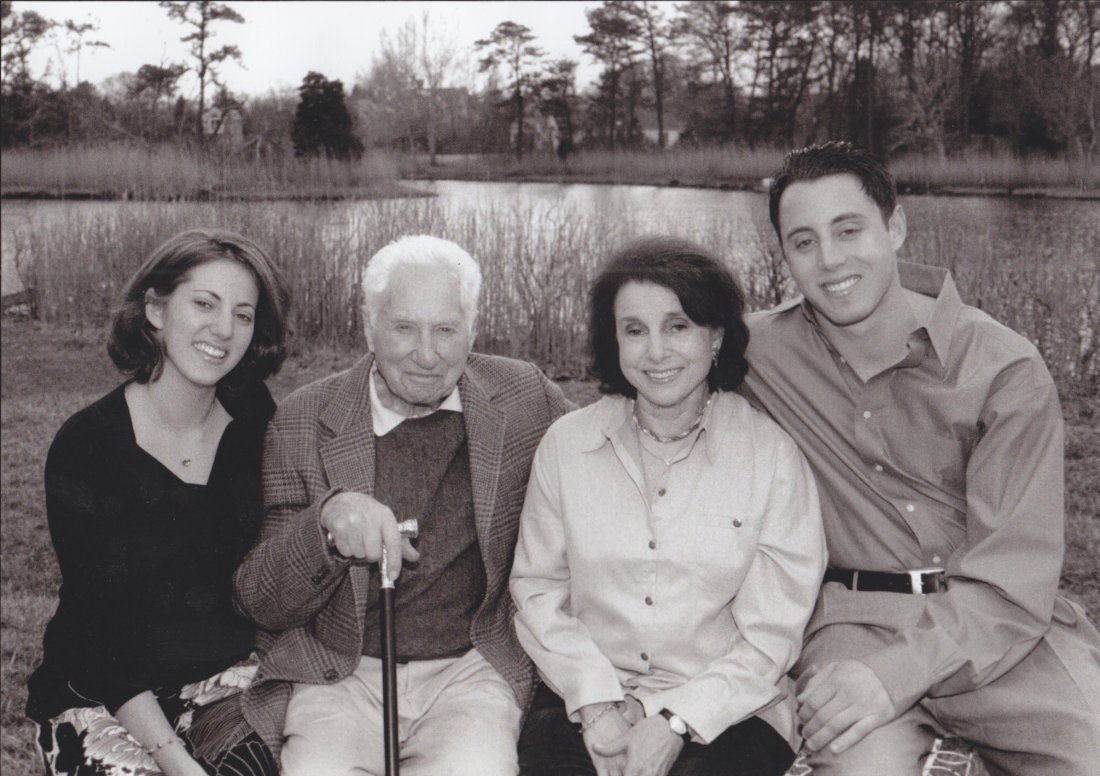
The Schulberg family in Westhampton, New York. From left to right: Jessica, Budd, Betsy, and Benn.
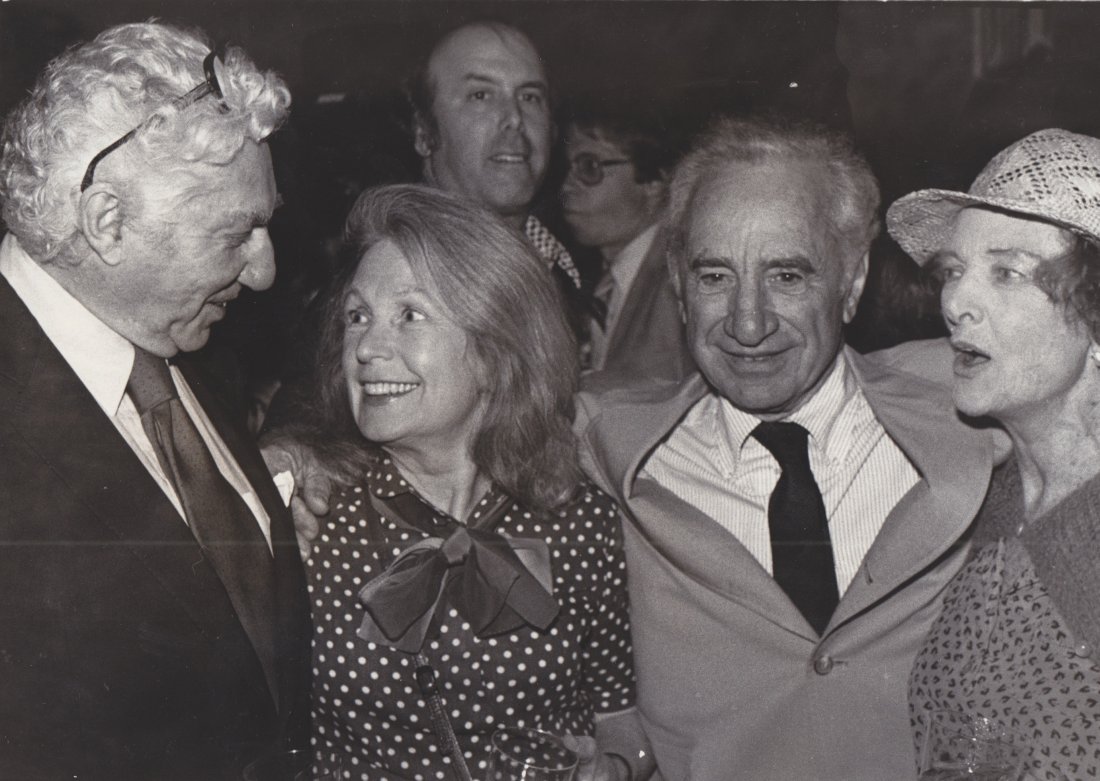
From left to right: Schulberg, actress Geraldine Fitzgerald, Elia Kazan, and actress Myrna Loy.
© Rita Katz
Rita K. Katz
40 East 88th STreet
New York, NY, 10028
© Rita Katz
All Rights Reserved
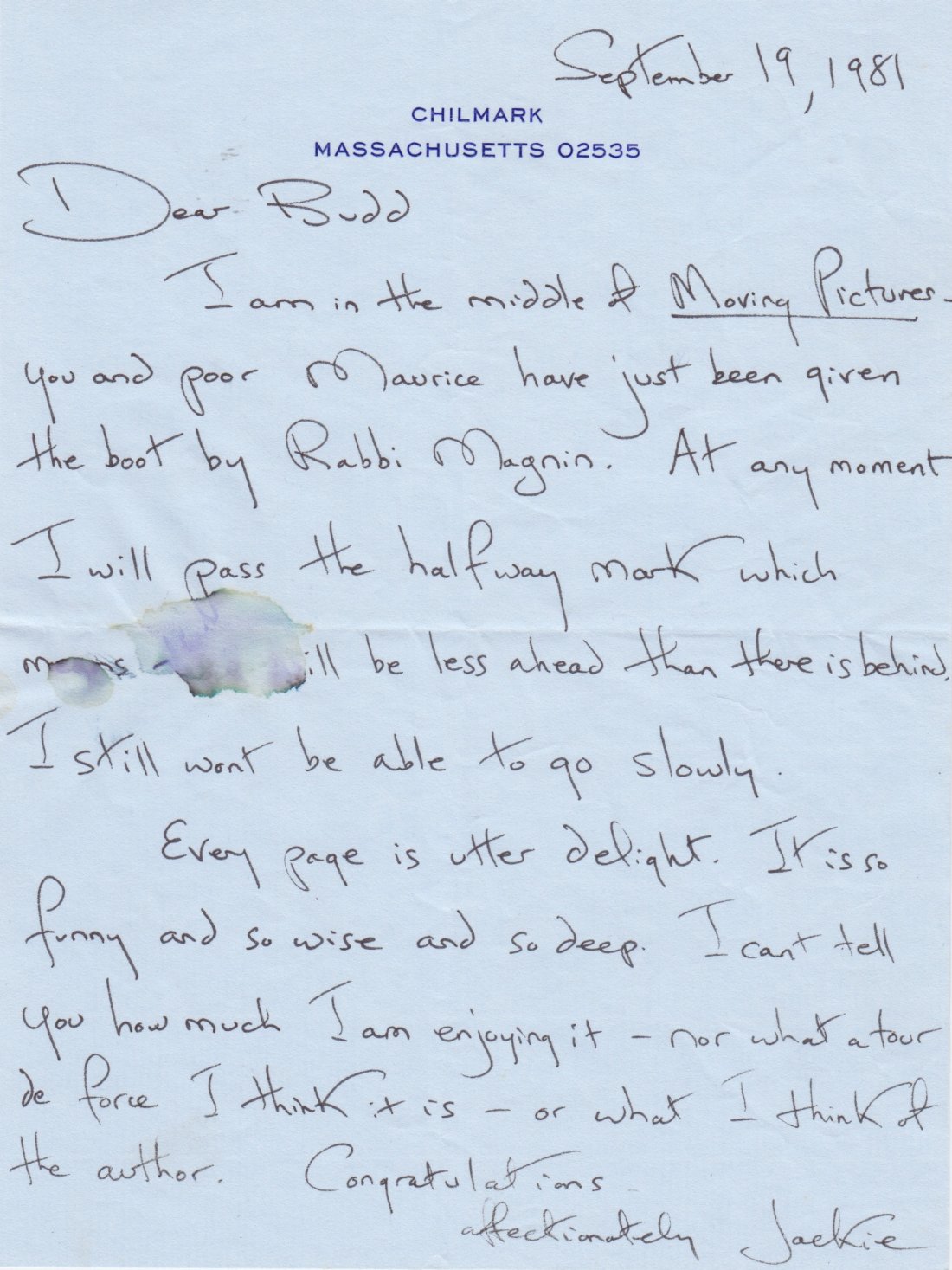
A letter from Jacqueline Kennedy Onassis to Schulberg, praising Moving Pictures, dated September 19, 1981.
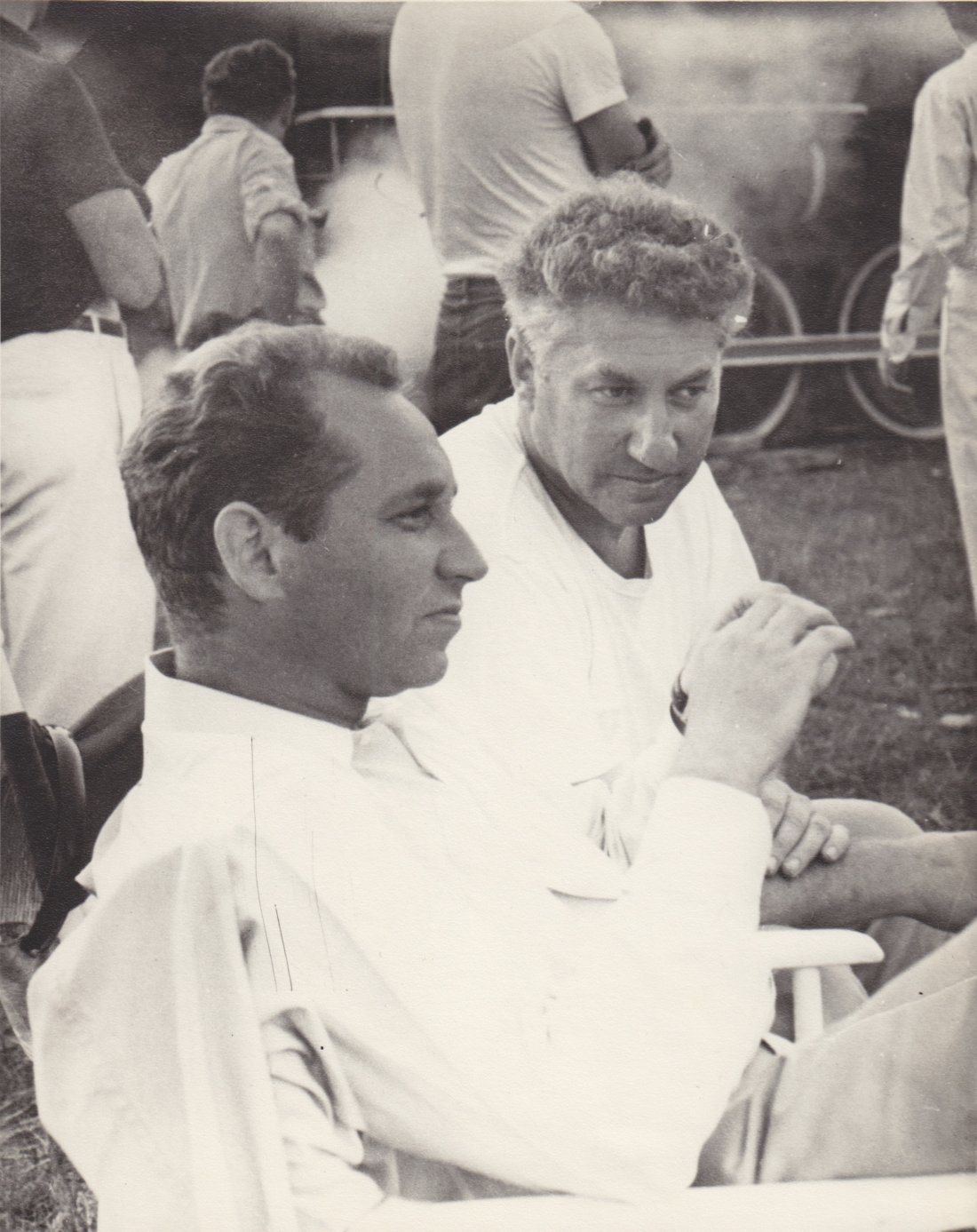
Brothers Stuart Schulberg and Budd Schulberg (from left to right) on the set of Wind Across the Everglades, a film written by Budd and produced by Stuart, in 1958.
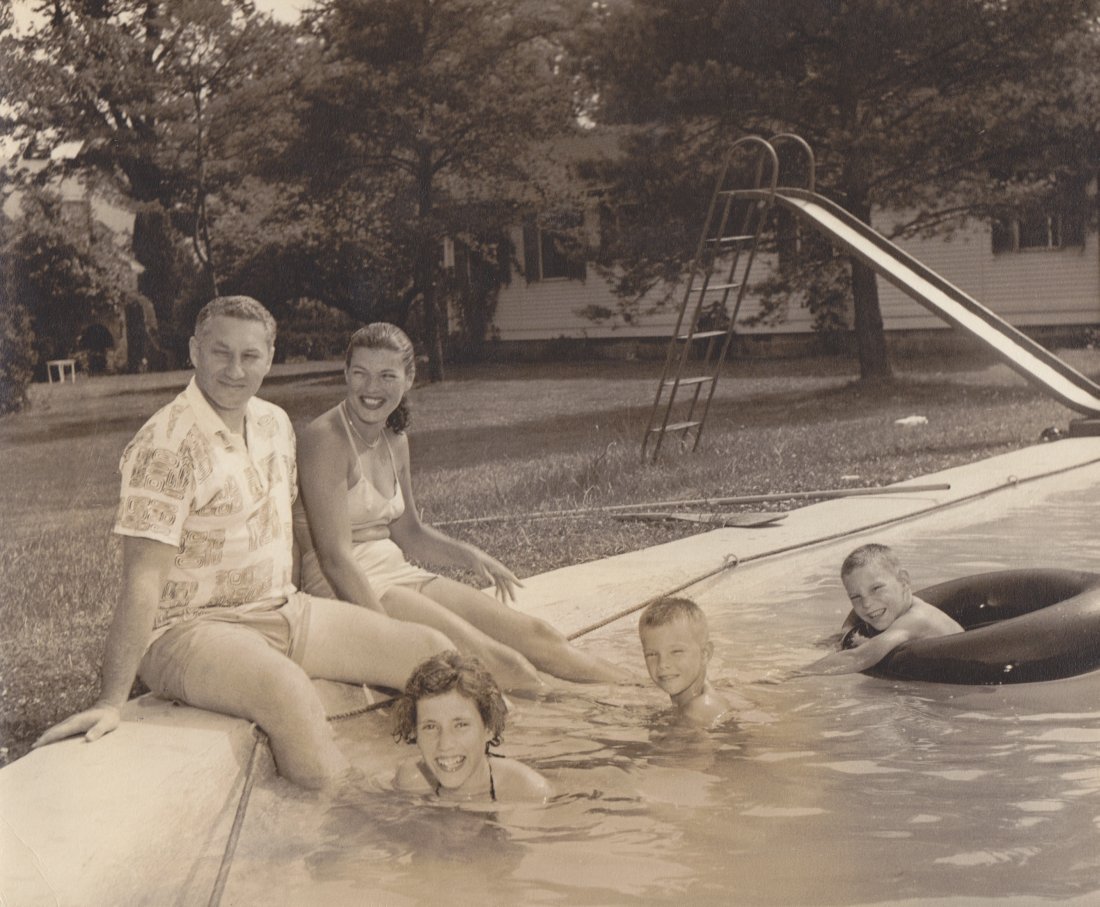
Budd Schulberg with his second wife, Virginia Anderson, at the pool outside his eighteenth-century farmhouse, Inghamdale, near New Hope, Pennsylvania, with Schulberg’s children David, Steve, and Victoria. This photo was taken around 1949.
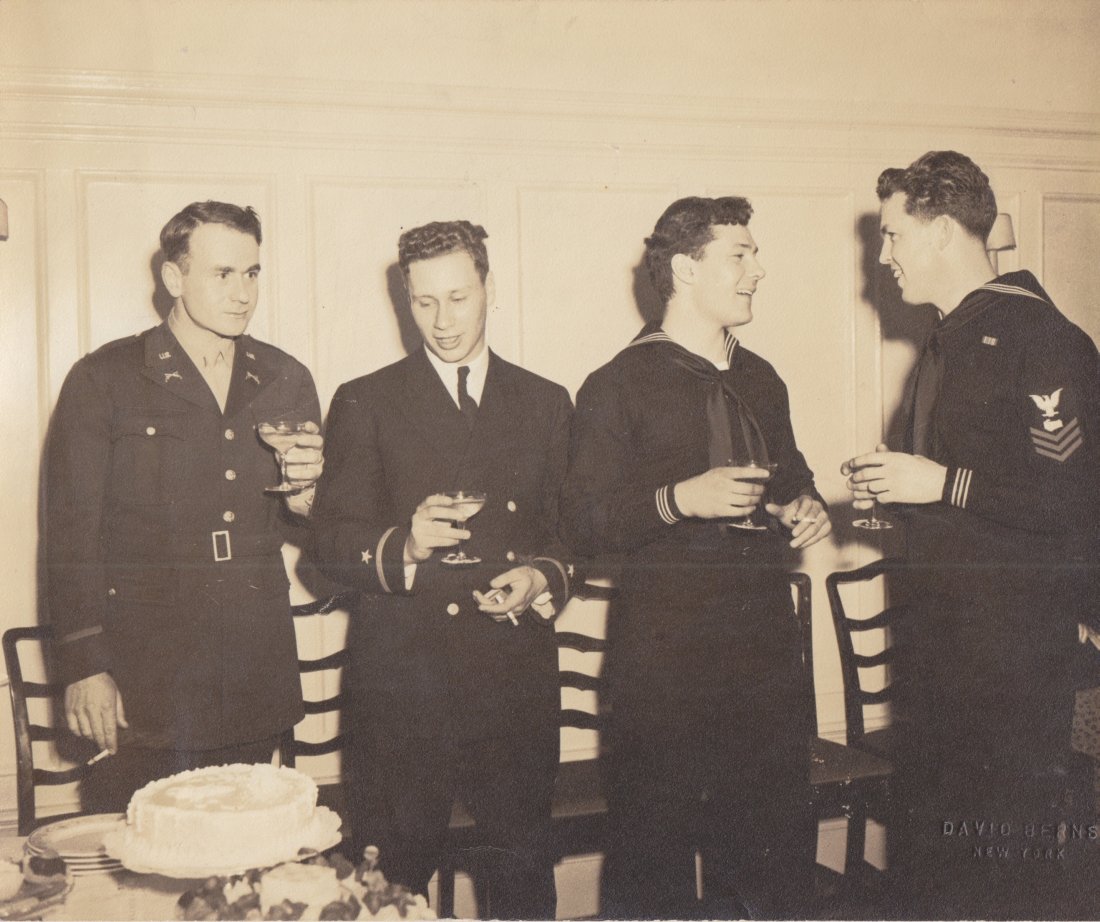
Schulberg with fellow members of the U.S. military, taken during World War II.
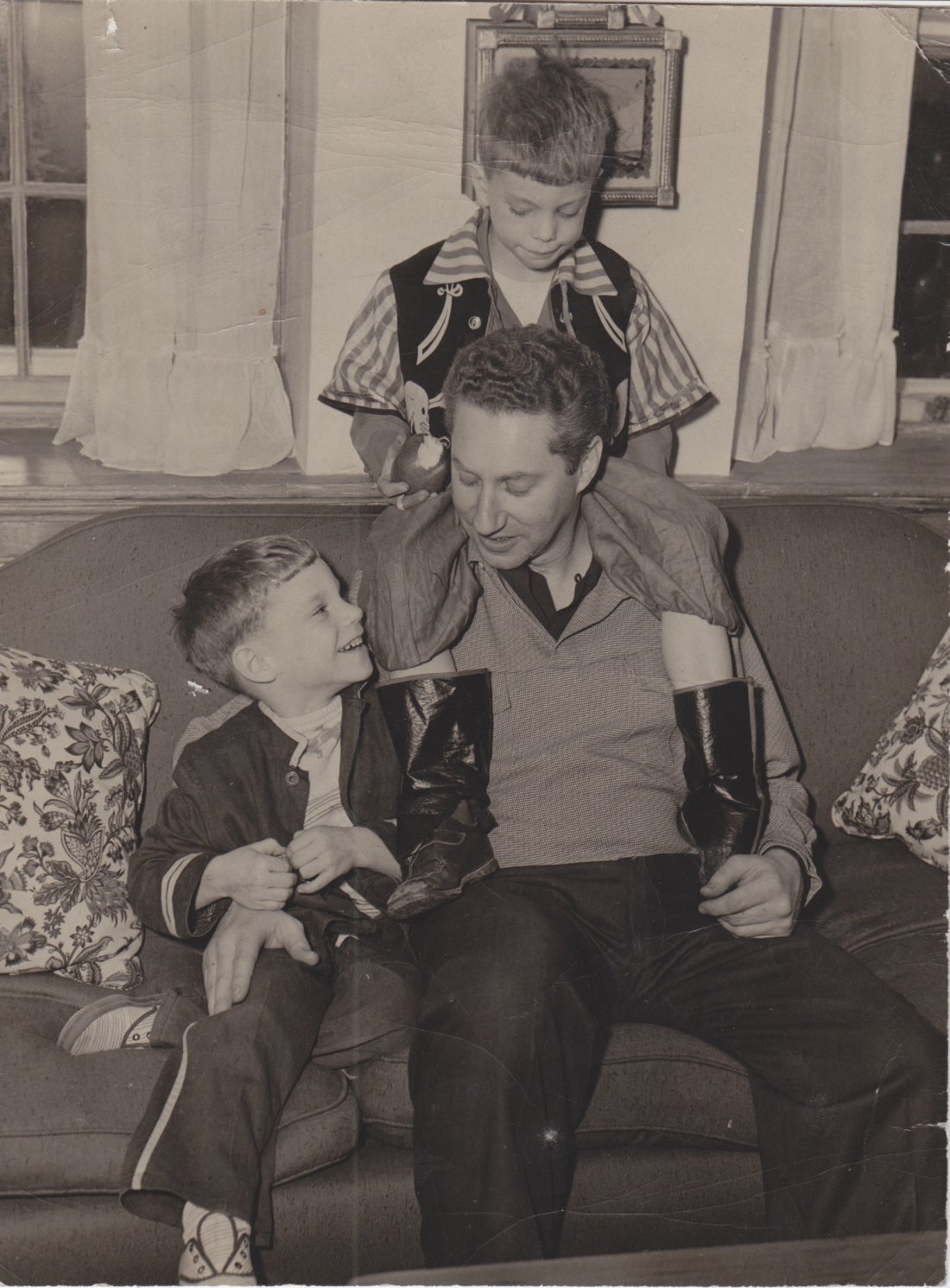
Schulberg with sons David and Steve.
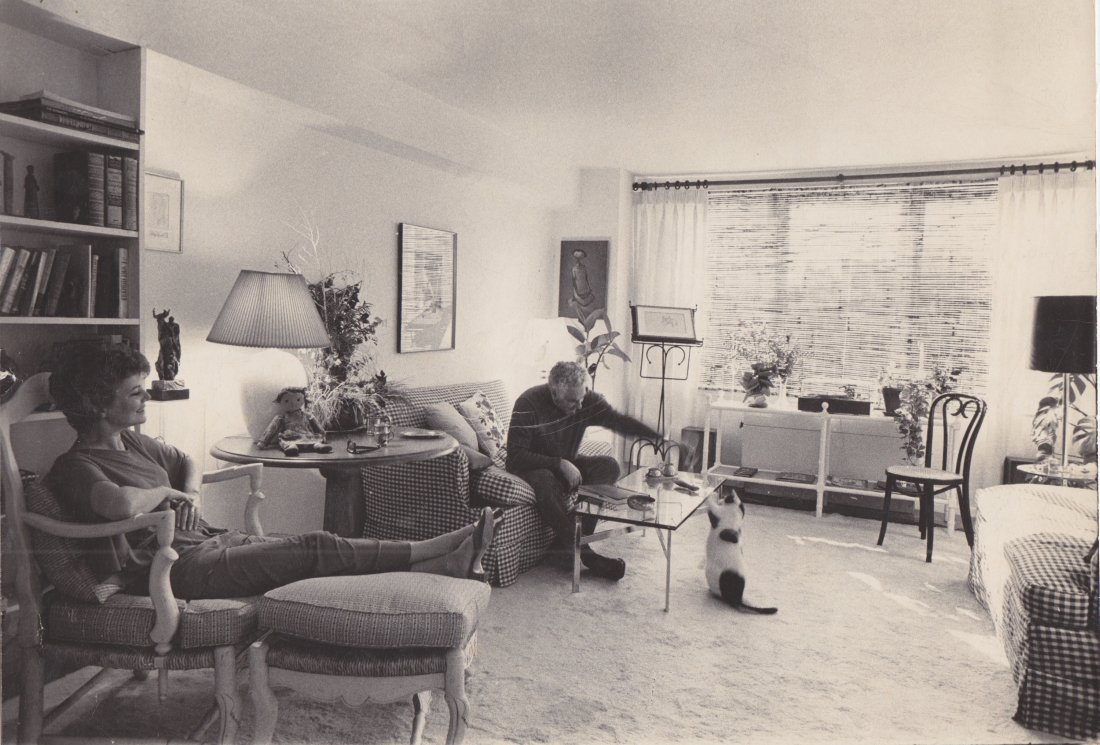
Schulberg with Geraldine Brooks and pet cat at their family house on Long Island in the mid-1970s.